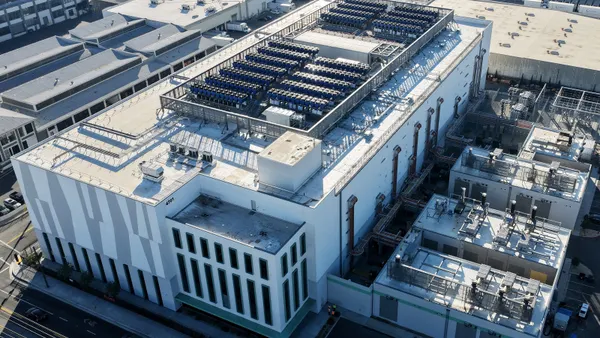Dive Brief:
- MonPower and Potomac Edison filed efficiency plans last month with West Virginia regulators that target 1% annual efficiency savings, doubling the level currently saved by the First Energy utilities.
- The utilities want to spend almost $10 million between January 2017 and May 2018 on a slate of efficiency projects, including home audits and lighting retrofits.
- It is the second phase of the utilities' efficiency plan, and is designed to achieve 59,616 MWh in reductions; combined with Phase I, the utilities are targeting a 21 MW demand reduction.
Dive Insight:
The Charleston Gazette-Mail points out that targets proposed in Phase II of MonPower and Potomac Edison's efficiency plan are still "woefully" behind what some utilities and states are finding achievable.
Massachusetts and Rhode Island, for instance, are clocking about 3% annual savings, according to the American Council for an Energy-Efficient Economy, and Maryland regulators targeted 2% annual savings in an order last year.
But still, the plans represent a doubling of efficiency targets for the West Virginia utility. And the plans are expected to result in only a 0.2% rate increase, the newspaper points out.
The Phase II plan includes a new residential energy efficiency program with three subprograms: energy efficiency kits, online audits, and lighting. The second phase will also include a continuation of an existing residential low-income program, along with new measures and a continuation of the existing non-residential energy efficiency lighting program for commercial, government and industrial customers.
First Energy said the efficiency "kits" include materials with energy saving recommendations and a variety of items "to introduce and promote energy efficient technologies that can be easily installed in the home." Those could include more efficient lighting, faucet aerators, low flow shower heads, or furnace whistles.
"Energy Efficiency Kit contents may change over time and may be customized to target specific customer end-uses such as electric water heating," the utilities said.
The Gazette-Mail notes First Energy's uneven record on efficiency, noting that during West Virginia's legislative session last year the utility lobbied against a measure to ease financing of homeowner efficiency measures.
“We strongly believe that these and any future energy-efficiency programs are best managed by the utilities as overseen by the Public Service Commission of West Virginia, which balances the needs of customers and utilities,” Todd Meyer, a spokesman for the utilities, told the paper.













